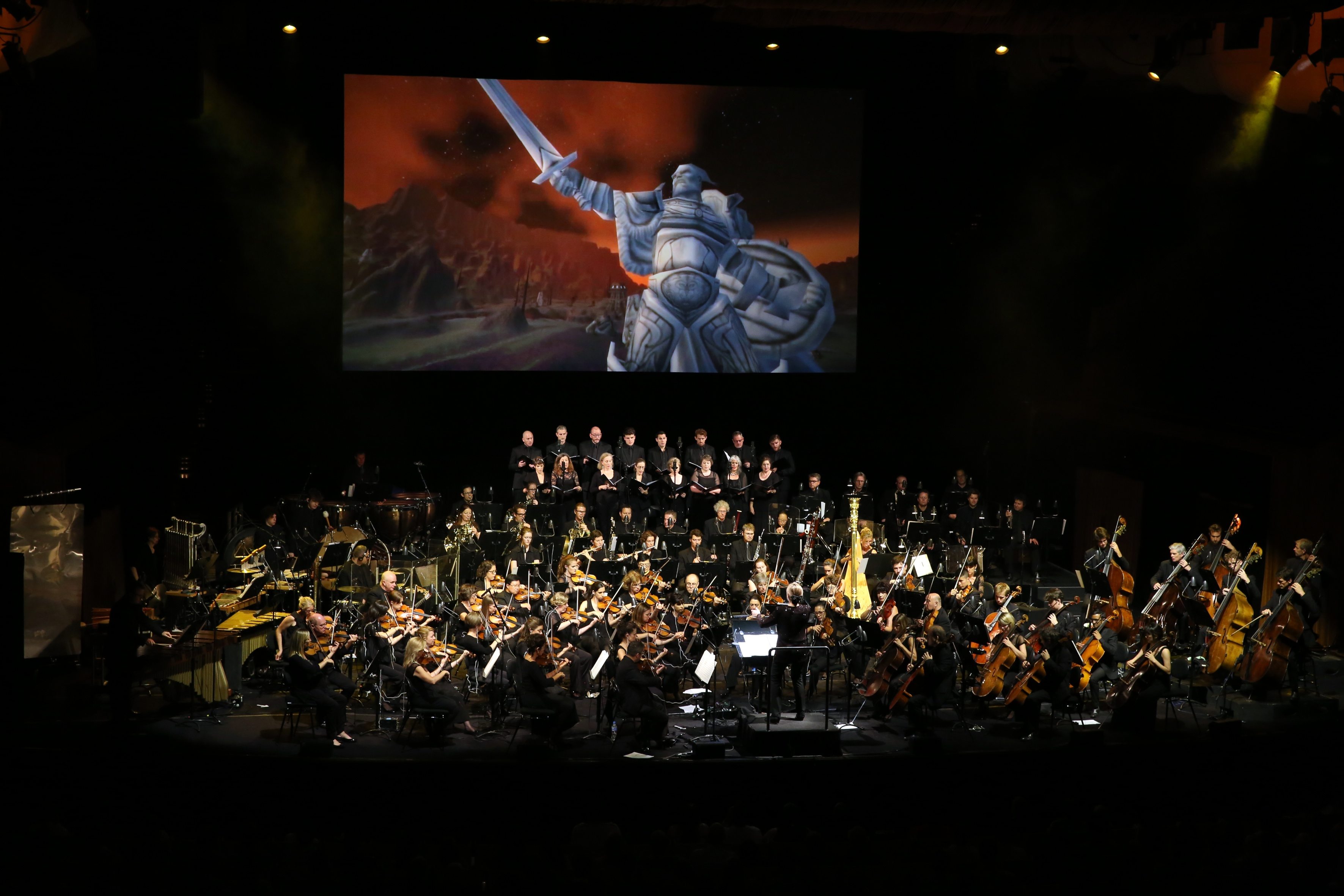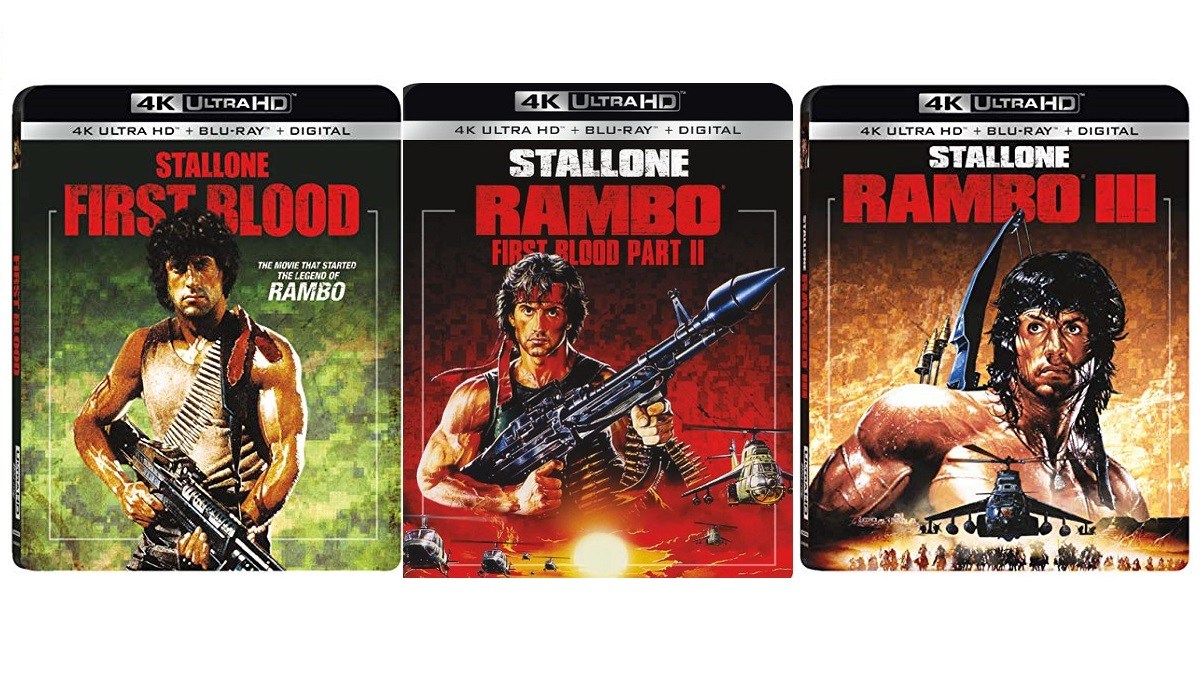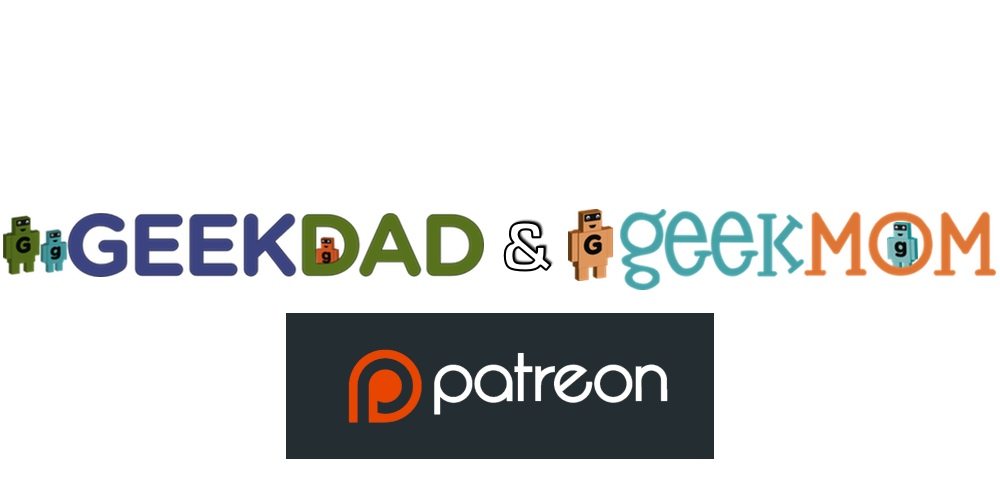Just as video games and video gamers have grown up, so has the video game soundtrack. Whether it’s the tinny electronica of a retro-style beat-’em-up or the orchestral might of the latest system-selling FPS, game music composers are at long last being recognized for the work they do to help craft the immersive digital experience.
A big part of this shift has to do with the number of regular expositions and touring concert series dedicated to this formerly ignored art form — and a big part of the latter, those roving symphonic productions, come compliments of Jason Michael Paul Productions.
Just last week the man himself took some time out of his schedule to talk to GeekDad about his latest project, rePLAY: Symphony of Heroes.

GeekDad: When Legend of Zelda: Symphony of the Goddesses came to town, the event was hosted live by both a conductor and a producer – working together to set the scene while the musicians took us through the story. Who’s at the helm for rePLAY: Symphony of Heroes?
Jason Michael Paul: Ryan Hamlyn is the producer of the show – I’m the executive producer – and I have, for this particular performance, Amy Andersson. She’s conducting the performance we’re having this weekend, but Miriam Burns is our usual conductor for rePLAY.
We have for this particular program, which is different from Symphony of the Goddesses, a recorded narration taking you on this journey – the hero’s journey, if you will – through the 17 chapters that we’ve created. It’s really cool! The voice is from Nigel Carrington; he’s actually the voice [actor] responsible for a wildly popular independent video game called Dear Esther.
We actually went to London and recorded his voice. He really serves as the narrator of this particular journey.
GD: Whereas Symphony of the Goddesses was finely focused on a single property, Symphony of Heroes has a much broader scope. Who are some of the heroes we’ll be celebrating?
JMP: A lot of the heroes are people you expect, everything from Link to Sephiroth to characters from Halo and World of Warcraft, the Elder Scrolls series, God of War and Lair – a game that Ryan Hamlyn produced. We have Kingdom Hearts, which is really cool. We have the very popular game Lost Odyssey, with music by Nobuo Uematsu and that was created by the original Final Fantasy creator, Hironobu Sakaguchi. It’s such a great game!
We have Portal – the music from Portal is amazing. We have Bioshock – which is awesome. We have Journey as well, as part of this program, and I’m really happy with that. That’s actually where our journey begins, ironically enough.

GD: You guys are definitely covering the spread there. I mean, in there is pretty much everybody’s favorite properties.
JMP: Yeah, the idea is to really create a presentation that’s about the art of video games from all levels. And it’s also kind of a melding of worlds from RPGS – well, mostly RPGs, but there are some others in there as well. There are action games, and we even have some sports games in the catalog. We really run the gamut. We even have some classics like Shadow of the Colossus, Castlevania and even Metroid.
What I’ve done is create “modules” within the concert, so we can swap out and interchange the properties that are involved in the concert program, which is a cool feature.
But, yeah, those are all heroes that we celebrate.
GD: Obviously we’ve talked a lot about Symphony of the Goddesses, but you’re also known for related projects like Dear Friends, its follow-up More Friends and PLAY! A Video Game Symphony. What is it that inspires you to continue to bring these compositions from the living room to the stage?
JMP: You know, I probably could’ve taken a break after Symphony of the Goddesses, but I just felt compelled to continue. I’m constantly inspired by people like Tommy Tallarico from Video Games Live, who continues to tour with the show, and the Final Fantasy shows that tour. I feel like I have my place in this world, and my place is hopefully to bring video game music to the masses. So I wanted to continue on that path and really push forward with not just Zelda (or Final Fantasy, for that matter), but all the other franchises that exist where the music is so beautiful but doesn’t necessarily get its own concert.
I’m hopeful that a lot of those publishers and developers coming onboard can really get behind this project, and we can create a strength and following like you see with Zelda and Final Fantasy. More “mass appeal,” if you will, rather than just a focused show.
I really think it’s just a matter of wanting to continue to do what I do. To spread the cheer, you know?
GD: But what are some of the challenges inherent in launching such a large, traveling production?
JMP: The challenge, really, is the finances. It’s a huge undertaking, especially as an independent producer. The projects aren’t funded by major corporations; these projects are funded by my company, so there’s a lot of development cost that goes into it. Everything from editing to the compositions to the printing of the parts so the orchestra can even perform it. Then there’s the marketing and the advertising, all the ancillary costs that are associated with it.
Honestly, the biggest challenge isn’t the work itself – the creativity – it’s the actual realization of such a huge financial undertaking.
GD: That’s certainly understandable, but by the same token there’s obviously been some success. How important is the very vocal, very passionate online video game music fan community in the growing appreciation for this sometimes overlooked aspect of digital entertainment?
JMP: It’s of tantamount importance; it’s the whole reason why we exist. That core of people? We really rely on them, and hopefully they can have a voice in spreading the wonderfulness that’s created through these concerts. It starts at that core, and hopefully it spreads outward from there.
The biggest thing is when I go to a city and we have a concert the response I get are often very positive – “It was amazing! Wonderful!” from the people that went – but the majority of responses are more along the lines of “I didn’t even know this was happening!” and I often think to myself, this was a once in a lifetime opportunity to do this show and have it in your city, and to miss it? It’s just so frustrating when I hear that.
It was there! You should’ve came! [laughs] It’s really just a matter of spreading the word, and letting people know that this actually exists.

GD: We’ve talked about games old and new, and the music that connects all of them. There are a couple of distinct fan camps with regard to game music: those who prefer the minimalist soundchip electronica of classic gaming, and those more taken with the broader, multi-instrumental slant of modern soundtracks. Which do you prefer?
JMP: I am fortunate enough to be exposed to a lot of newer projects, but of course I grew up when the industry was in its infancy. So I can’t really say that I like one more than the other. I have a soft spot in my heart for nostalgia – sadly my youth is now being categorized as nostalgia [laughs]. Obviously those old Nintendo games, Koji Kondo‘s Legend of Zelda and Mario music, and I’m a big fan of, like, Castlevania, so I think that’s where my preference lies, but I know that there are friends of mine like Jeremy Soule, the composer for Elder Scrolls – which I just realized is a title I also have in the concert that I neglected to mention – are so prolific. He’s a contemporary composer, and he’s amazing. And I can see how far we’ve come…
I guess I’m kinda beating around the bush here!
It’s really hard to pin down what I prefer. I like the newer compositions because they’re more in a classical, almost film score mentality in the sense of using a real orchestra to record the scores as opposed to the blips and bleeps of synthesizers or MIDI sample libraries. I’m more appreciative of that, but I definitely appreciate the new and the old.
GD: That’s a well-reasoned and acceptable answer, Jason. Most fans know the bigger names in game composing – your Koji Kondos and Nobuo Uematsus. Are there any more unsung heroes of video game music design, like Jeremy Soule, that you try to shine a light on?
JMP: Absolutely! Garry Schyman, who’s responsible for Bioshock. I think he just won a BAFTA for his work on that game. And, yeah, Jeremy Soule is a very prolific composer. He’s actually doing Everquest for Sony Computer Entertainment Online, but he did all the Elder Scrolls series, Guild Wars and was even my music director for Legend of Zelda: Symphony of the Goddesses. He’s… he’s just amazing. Absolutely amazing!
There are so many talented composers doing work in video games.
GD: Lastly, Jason, you currently have 8 North American dates lined up for rePLAY. Can you give us a hint as to what comes after?
JMP: We’re adding more shows every day. We’re working on a deal for a London show. We have other opportunities for South America after our Mexican dates. Boston, San Francisco, Seattle, Portland – all majors cities are really going to be on the table. We’re just announcing as they’re confirmed.


